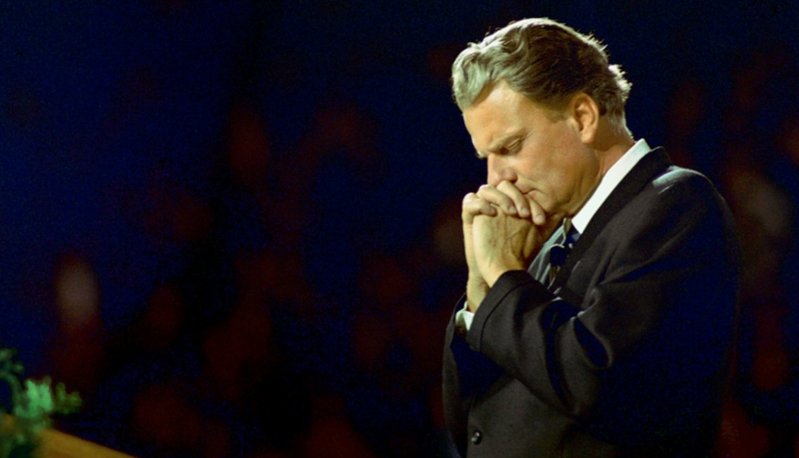
Prominent evangelist Billy Graham will be honored with a special exhibit at the North Carolina Museum of History in Raleigh from Nov. 6, 2015, through July 2016.
Graham, now 96, is one of North Carolina's most famous sons and has made the annual "Most Admired" list a record 58 times. The evangelist grew up in Charlotte and currently resides in Montreat, North Carolina. In addition to advising numerous political leaders, Graham is known for his crusades that brought the gospel to 215 million people, according to the Billy Graham Evangelistic Association.
According to a report from Charisma News, North Carolina Museum of History visitors will now get a chance to learn more about the life and ministry of the renowned preacher thanks to a special exhibit, "North Carolina's Favorite Son: Billy Graham and His Remarkable Journey of Faith," which will be displayed at the museum in Raleigh.
The 5,000 square foot exhibit will open November 6-the day before Billy Graham's 97th birthday. It will include memorabilia, displays, and multimedia that document his early days as a child in Charlotte, his family life, his friendships with world leaders and dignitaries and his leadership through national and international crises like 9/11.
"It seemed appropriate to pay homage while he is still living," said David Bruce, assistant to Billy Graham. "And now, anyone who visits the North Carolina Museum of History will have a chance to see the influence this man from our state has had worldwide."
In 2013, North Carolina Governor Pat McCrory visited Graham and presented him with the title "North Carolina's Favorite Son." However, after the title became official, it became apparent to several state leaders in Raleigh that there was little in the way of public recognition for Graham.
So, the group went before the museum directors and petitioned to have a display to honor the prominent evangelist, according to Charisma.
"They realized there was not very much reflection of our state's faith element, and that a display about the life of Billy Graham would satisfy much of that," Bruce explained. "There are definitely reflections of notable people like politicians, but this adds a missing and very important piece."
Bruce also emphasized that the display ultimately serves to spread the name of Jesus even more: "Any great honor Billy Graham receives points to his message, his integrity and his faithfulness. It's really a testimony of the Gospel of Jesus Christ."
"It will have a great impact," he added. "As part of the exhibit we can point people toward the permanent exhibit-the Billy Graham Library."
Tom Phillips, vice president of the Billy Graham Library, said he hopes the exhibit will both create an awareness of the library and inspire the next generation of North Carolinians.
"A lot of people go to a historic museum to look at the whole picture of a state's history. In doing so, North Carolina Museum of History visitors will discover the spiritual history of our state through the lives of Billy and Ruth Graham," he said.
He added, "My prayer is that they will walk away with the understanding that they don't have to be pastors, missionaries, or world famous evangelists to fulfill God's call. They can do that wherever God places them."
"We always want something like this to cause a person to consider his or her own relationship with the Creator. You want it to touch hearts and draw attention to spiritual things," Phillips said. "People are so busy these days; they don't stop for much. My prayer is that each visitor can 'be still' as they tour the exhibit and that God's Spirit will break through and change lives."
As reported by the Gospel Herald, in September, North Carolina Senate voted unanimously to pass a measure asking a congressional committee to approve Graham's likeness as a state contribution to the Capitol. The bill will now head to Gov. Pat McCrory for final approval.
Congressional guidelines state that a person's statue can only be installed following their death. Additionally, each state is allowed to contribute two statues, many of which sit in Statuary Hall. Currently, there are 100 statues on display in the U.S. Capitol.
The AP notes that the bill seeks to replace the current statue of Charles Aycock, North Carolina's governor from 1901 to 1905, who was known for his ties to the White Supremacy movement.
Meanwhile, North Carolina's state House also voted for a resolution the same month requesting that the U.S. Postal Service honor Graham with a stamp, according to the AP. In 2011, postal officials ended a policy that stamps could not feature someone who is still alive.







